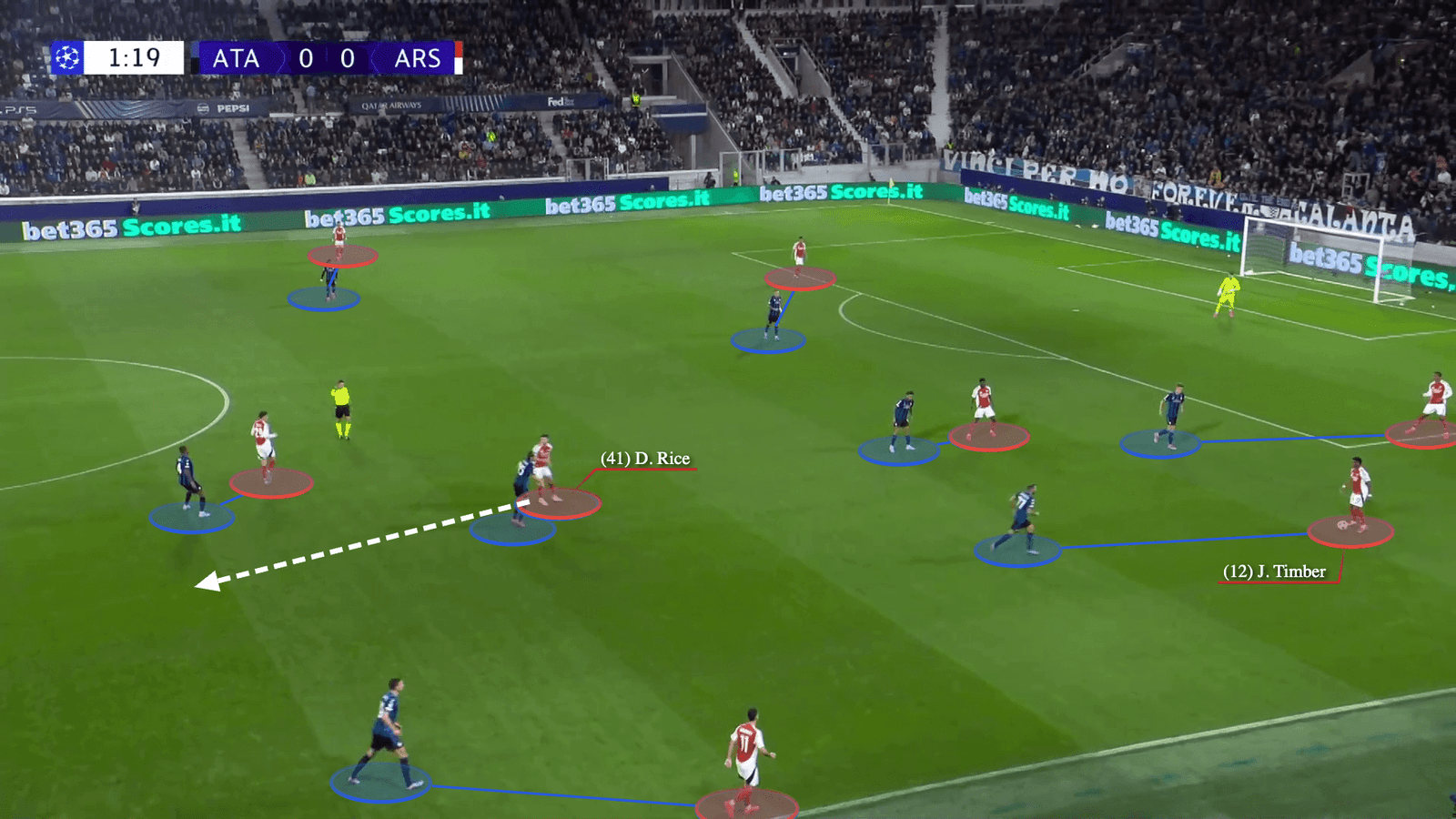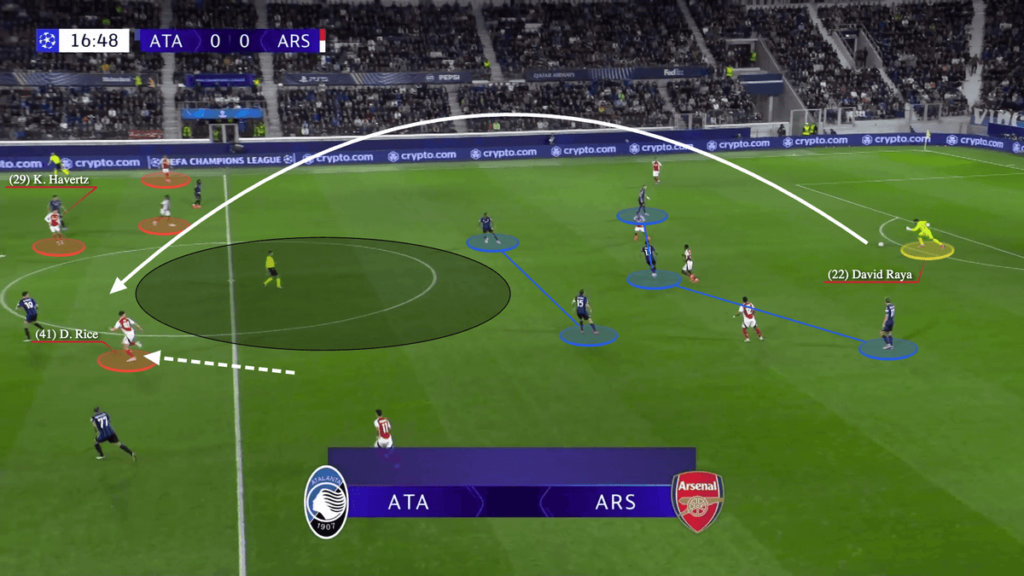Pep Guardiola once compared playing Atalanta to going to the dentist — watching Arsenal’s build-up in Bergamo was like pulling teeth.
Context is important. Atalanta are Europa League holders, having beaten the unbeatable Bayer Leverkusen in Dublin in May, winning with their trademark player-for-player press.
Meanwhile, Arsenal are in what will likely be their hardest seven days of the season. Thursday’s Champions League trip to Atalanta came after the north London derby and before an away date with Premier League champions Manchester City.
A 0-0 draw at Atalanta after a 1-0 win over Tottenham Hotspur emphasised just how much Mikel Arteta has built his team on clean sheets (they have kept four in five games this season and only conceded once).
A risk-averse approach, particularly in build-up, was more understandable given opposition tactics and the absence of injured captain Martin Odegaard. Yet Arsenal leant into a long ball strategy that suited Atalanta more than themselves.
Principally, playing long could use David Raya’s distance kicking to exploit space and a lack of Atalanta coverage further upfield. However, long balls inevitably mean duels, and Arsenal were up against the tallest team in Serie A this season, as per the International Centre for Sports Studies (CIES).
To mitigate Odegaard’s absence as the right No 8, and in keeping left-footed balance, Arteta brought Kai Havertz (6ft 4in/193cm) back and Gabriel Jesus (5ft 9in) played as the striker instead.
He might be strong for his size, but Jesus is not the striker profile for playing direct, which is why he and Havertz kept rotating. Jesus became the third midfielder, Havertz the focal point, while Declan Rice would push up.
Arsenal played 12 per cent of their passes long (35+ yards). Since the start of 2022-23, they have played 105 games in all competitions, and there were only 13 games before Atalanta where they passed long as often.
Here is one of the first instances, when Atalanta locked on and Jurrien Timber ran out of options. He tried a channel ball to Jesus, and Rice made a run from midfield, but they turned over possession.

Long ball success can be a misnomer — it indicates if a team-mate touches the ball next or not. Even if they lose the first contact, teams can lose a duel and pick up the second ball, or counter-press.
In Arsenal’s case, with an excellent high press, losing the ball in Atalanta’s third was not a problem.
Though, only completing 32.7 per cent of their long passes was an issue. Their average in that statistic, in all competitions since 2022-23, is 48.1 per cent.
Goalkeeper David Raya played the most long passes of any Arsenal player, kicking longer more times (21) than short (19).
There were instances of him hitting diagonals out to the right, where full-back Ben White pushed on. This threatened Atalanta more, as they were lighter out wide (playing a wing-back system), but Raya primarily played down the middle.
The problem was Atalanta had height and numbers, so Arsenal were less likely to win duels and needed a strong second-ball structure.
Normally that would be the midfielders pushing up, but by rotating Havertz to No 9 and sending Rice forward, Arsenal relied on their wingers coming inside.
Here is an example of Arsenal reaching the final-third from a long ball, but being too slow to play forward from the second ball.
The pitch is split into two five-v-fives. Timber has rolled inside to be an extra No 6 and Jesus has dropped deep, while Atalanta press out of a 5-2-3. Further upfield, Rice has pushed on, Bukayo Saka is inside and White has moved up on the last line. Havertz is the focal point.
Rice wins the duel against Berat Djimsiti. Havertz runs onto the flick-on, but neither Saka nor Gabriel Martinelli are close enough to him to combine, and neither makes a run in-behind.
The result is that, in 10 seconds, Atalanta have largely recovered shape and Arsenal have gone nowhere.
From another Raya long pass Rice is duelling Djimsiti. Both miss the ball and it runs through, but Martinelli is too slow to react and Djimsiti beats him to possession.
“We lost control of the game because we were very inconsistent with the ball,” Arteta said. “Against a team that are man-to-man (that) costs you moments to transition.”
Arsenal could have won the game from a Raya long ball on 74 minutes. They shaped up to play out from the goal-kick only to launch long, with Atalanta’s player-for-player press leaving a four-v-four on halfway.
The ball stuck to Havertz, who finally had support — Raheem Sterling was on for Saka. Havertz held off Isak Hien, popped it to Sterling, and he found Martinelli’s diagonal run through the defence.
The Brazil winger’s first touch was a little heavy, and put the chance on a wider angle than it should have been and shot over. It was comfortably Arsenal’s best opportunity — they did not have an open-play shot on target.
Gabriel Martinelli skies a great chance to give Arsenal the lead 🥅
📺 @tntsports & @discoveryplusUK pic.twitter.com/oEWLGQbW6y
— Football on TNT Sports (@footballontnt) September 19, 2024
Arsenal did not make enough from wide. They had little going down the left with Timber moving inside, which left Martinelli isolated and easy to mark.
On the opposite side, White made useful runs in behind and rotations with Saka, but Odegaard’s passing range was missed — right centre-back William Saliba took fewer risks in his passes and those right-sided triangles struggled to work with a side missing.
Arsenal only attempted 10 take-ons, their fewest since March 2023 (nine, in a 4-0 Premier League win over Everton). Saka and Martinelli dribbled once combined.
Against an aggressive player-orientated press, dribbles are a high-risk, high-reward solution — beat an opponent and their entire scheme collapses. Arsenal did not break the press enough through dribbles.
The game had shades of their defeat in Porto last season, when Leandro Trossard started as the No 9 and Havertz was in midfield. Raya sent a lot of unsuccessful long balls that day too.
Arteta praised them for not losing if they could not win (unlike in Porto). However, if this game is any indication of how Arsenal might build up, or over, City’s press, they need to find more solutions.
Read the full article here

